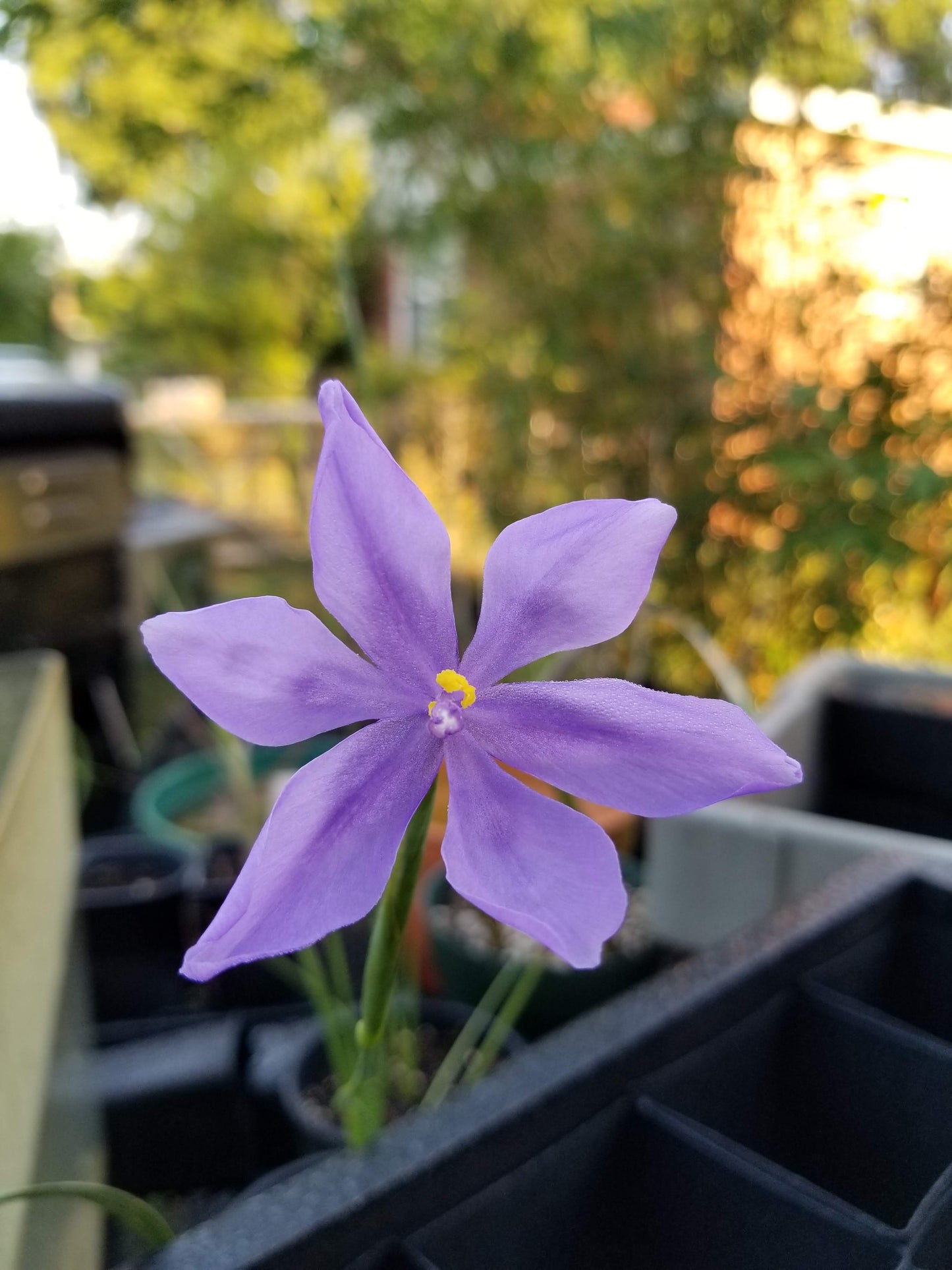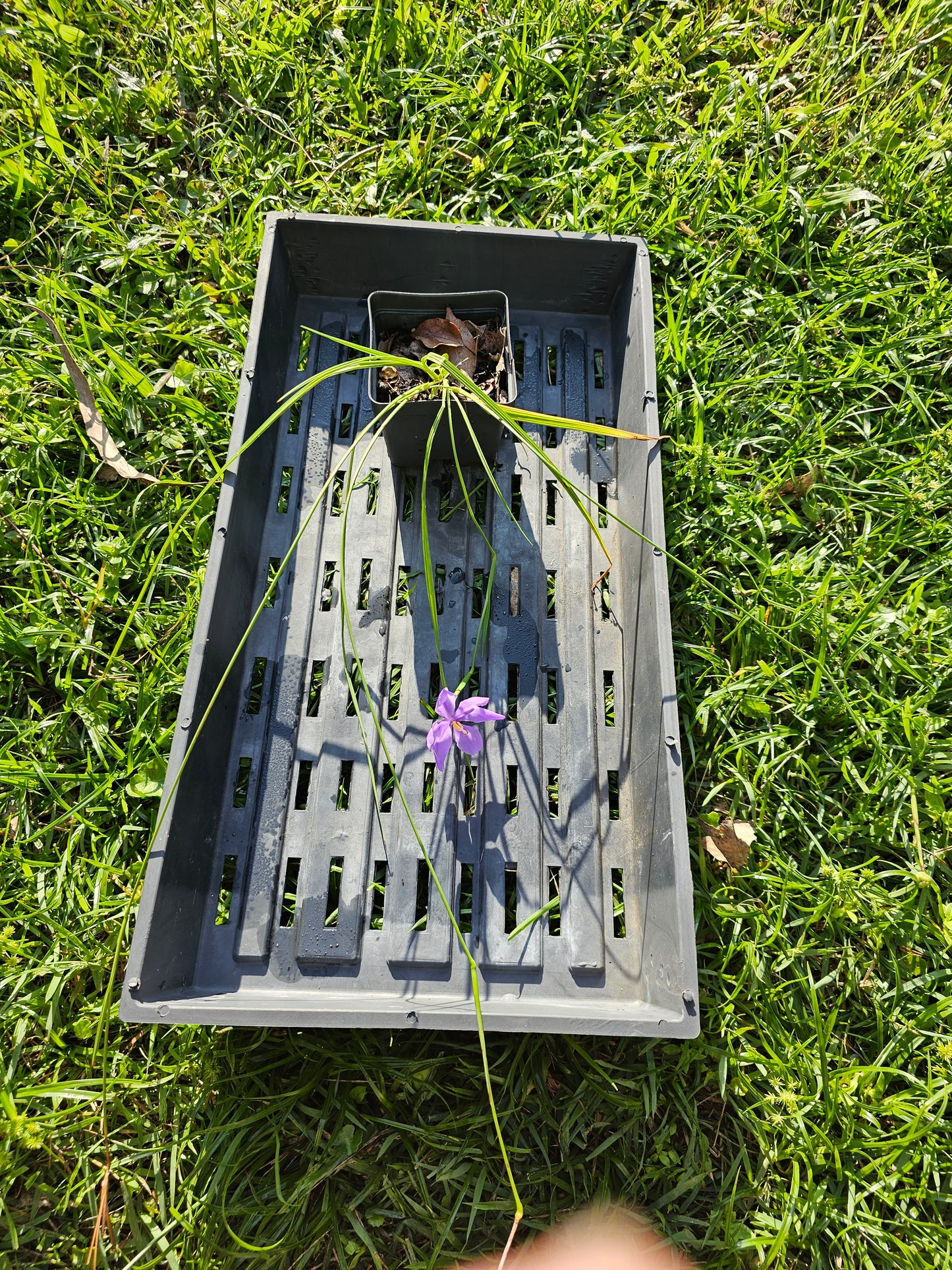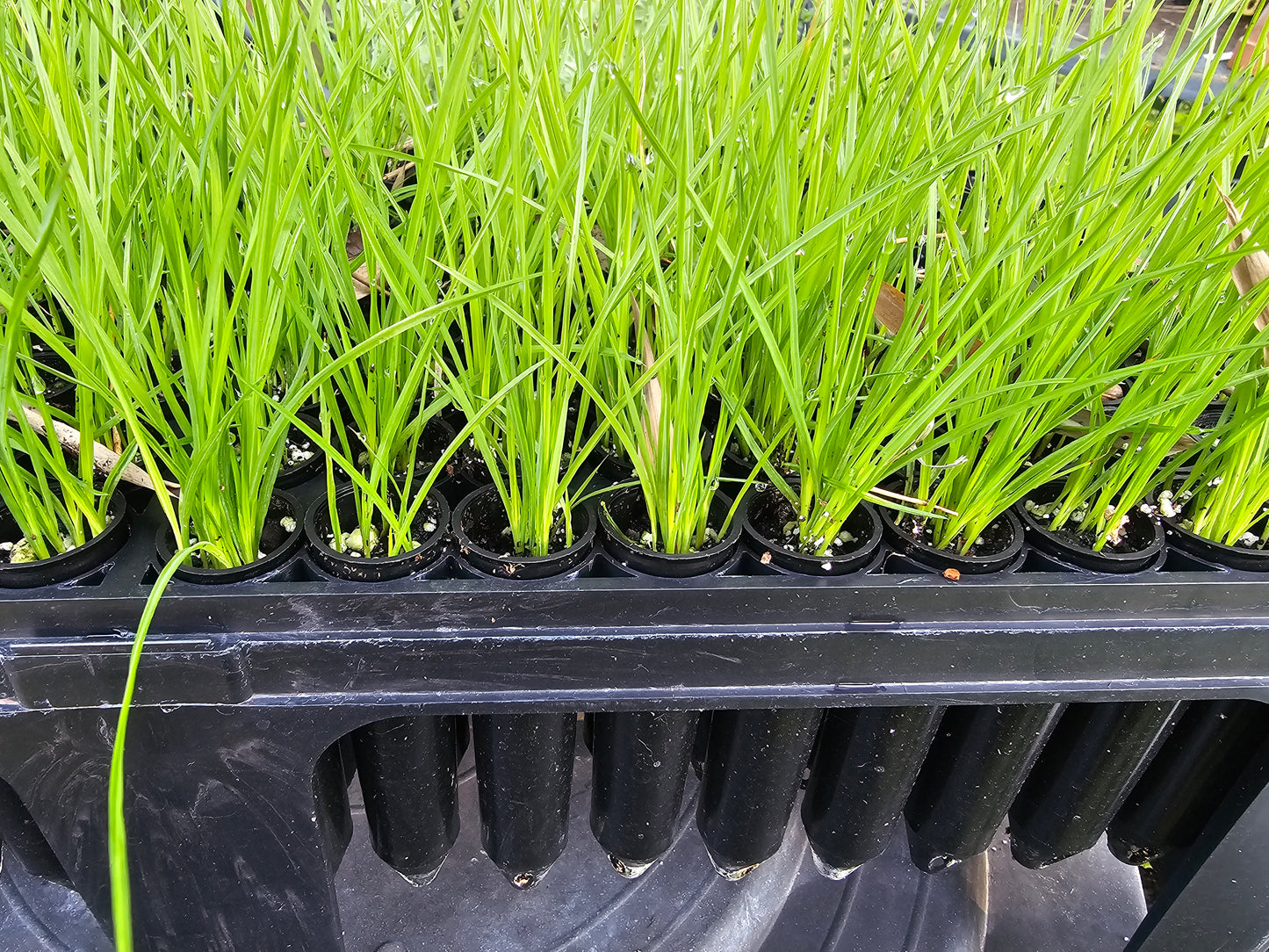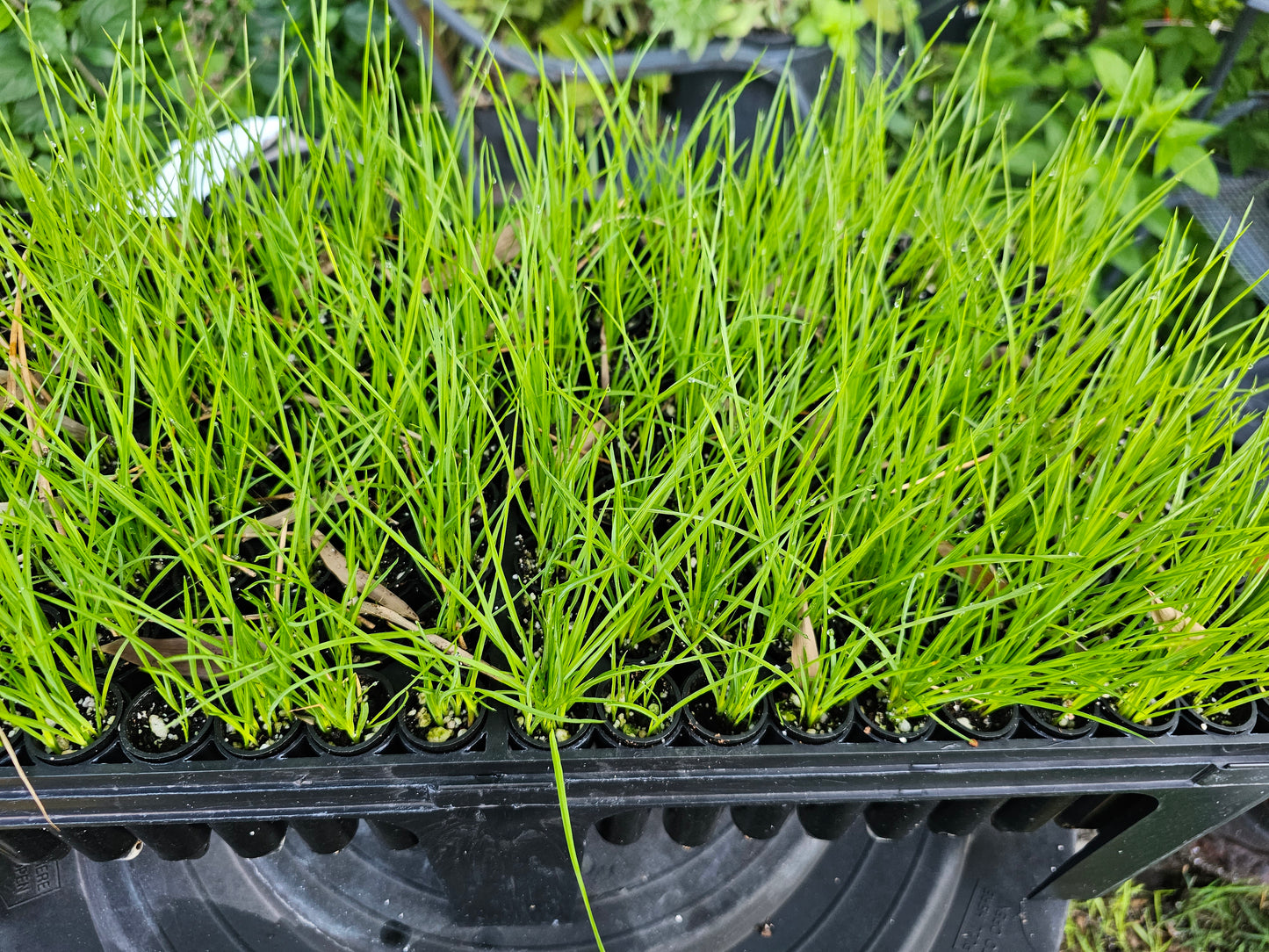Gnarly Nursery
Calydorea caelestina, Bartram's Ixia
Calydorea caelestina, Bartram's Ixia
Out of stock
Couldn't load pickup availability
Calydorea caelestina
Synonym(s)
(Ixia caelestina, Sphenostigma coelestinum)
Common Name(s)
Bartram’s Ixia
- Phonetic Spelling
- kal-ee-DOR-ee-uh koh-el-ES-tee-nuh
- Description
- Bartram’s ixia (Calydorea caelestina) is a rare state-endangered wildflower endemic to only a small area of northeast Florida. A denizen of wet flatwoods and prairies, it requires a consistent and natural fire frequency (every 2 or 3 years) to persist. It blooms in late spring through mid-summer and, in suitable habitats, populations of hundreds to thousands can create a stunning sea of bright blue across the landscape — but only for early risers. The flowers open at dawn and begin to wilt and fall away by mid to late morning.
Bartram’s ixia is extremely hard to spot when not flowering. Its slender green stem and few narrow grass-like leaves make it relatively indistinguishable from the surrounding vegetation. Its flower, however, is hard to miss. It is up to 2.5 inches across and bright blue or violet with six petals, three conspicuously yellow stamens, elongated anthers, and a purple style.
Bartram’s ixia was formerly classified as Ixia caelestina. The common name references William Bartram, who described the plant in the late 1700s in his book Travels. Threatened primarily by habitat loss and fire suppression, around 60 occurrences are believed to persist today, with at least 10 of those considered to be stable.
The 6" long, green-pleated, iris-like leaves form a small clump. Starting in early summer and continuing into late summer, the tiny tufts of Calydorea coelestina are topped with 12" stalks, each ending in a huge, 2" deep violet flower. Each flower remains open only until noon, so plant this in a special place where it can be enjoyed early in the day. Although native to bogs and grassy pinelands, we have found Bartrams Ixia to be extraordinarily easy to grow in a container or in a wide range of drier (but not too dry) garden conditions. We are delighted to offer plants grown from seed of our garden plants.
- Family
- Iridaceae
- Native Range
- Baker, Union, Bradford, Clay, Putman, Volusia and Duval counties.
- Hardiness Zone(s)
- 7a --to-- 10b
- Lifespan
- Herbaceous, Perennial
- Habitats
- Wet pine flatwoods.
- Exposure
- Full Sun --to-- Part Shade
- Growth Habit
- Grass-like perennial from a corm.
- Soil Texture
- Acid, Loam (Sand/Silt/Clay)
- Propagation
- --Seeds
- Moisture
- Somewhat moist, no flooding --to-- Not wet but not extremely dry
- Salt Water Tolerance
- --
- Salt Spray Tolerance
- --
- Attracts
- Bees
- Recommended Uses
- Mass Planting, Rain Garden, Showy Flowers
- Pot Size
- 4in. Pot (19.4 fl. oz./0.57 L)
Share







